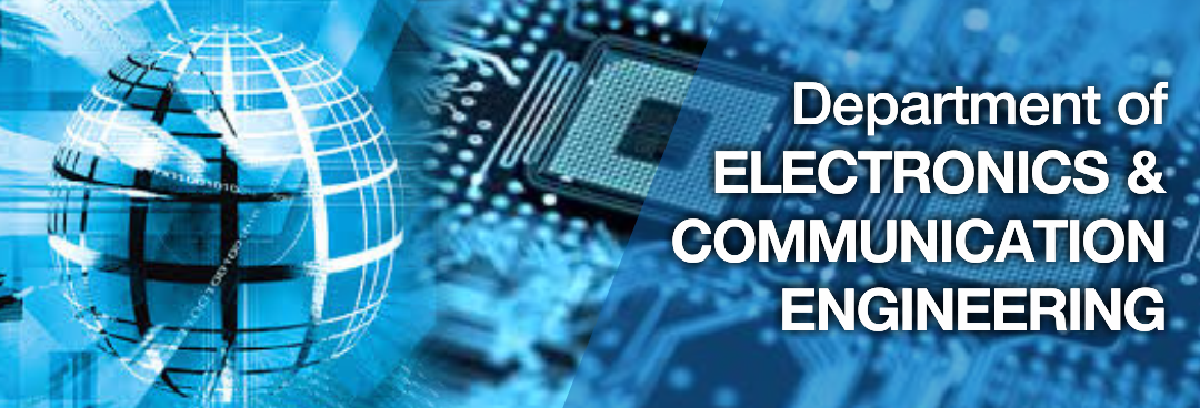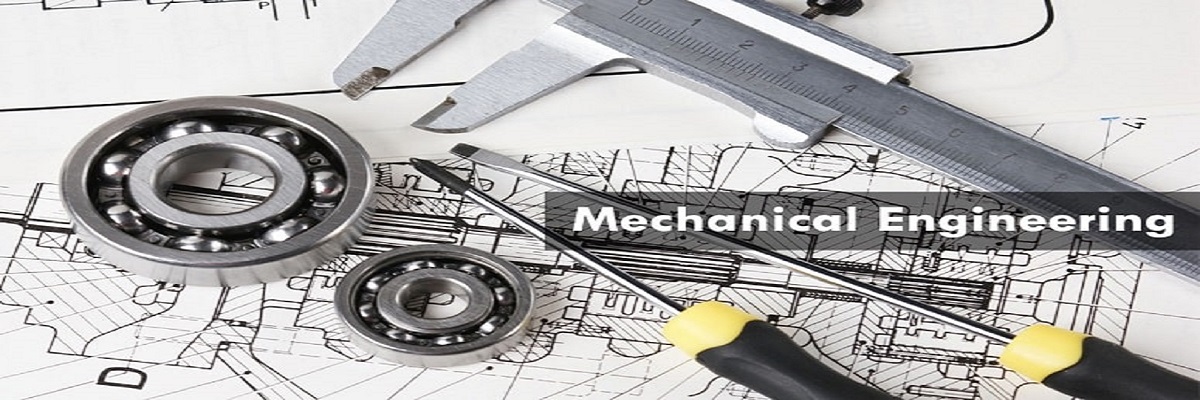In ARMIET we have three Specialization for Masters degree with Intake 60 Seats
- Masters in Computer Engineering – 18 Intake
- Masters in Electronics and Communication Engineering – 18 Intake
- Masters in Mechanical Engineering – 24 Intake
In ARMIET we have three Specialization for Masters degree with Intake 60 Seats

Department of Computer Engineering was established for Bachelor of Engineering with an intake of 60 students in 2008. The department expanded by introducing the Master in Engineering course with an intake of 18 students in 2012. It has an excellent infrastructure and is approved by University of Mumbai, DTE, and AICTE.. The department has 10 laboratories equipped with the latest software and technologies. The department has stable, highly qualified and experienced staff members.
Computer engineering, one of the most rapidly growing fields today, helps us to solve modern engineering problems using design, development and application of digital and computer-based systems. Computer Engineering provides the opportunity to work in the continuously changing technology sector. It also helps to equip our graduates with the knowledge and expertise to contribute significantly to the knowledge and information industry and to continue to grow professionally.
It promotes open source software development and its student’s have been closely involved with such development projects.
Computer Engineering students study the design of digital hardware and software systems. It encompasses a wide range of topics including operating systems, computer architecture, computer networks, robotics, artificial intelligence and computer-aided design. Students are trained both quantitatively and qualitatively during the lab session that enhance their understanding and helps further to motivate them to taking projects and proves as a helping hand to do their projects efficiently

Electronics and Telecommunication Engineering (EXTC) involves researching, designing, developing and testing of electronic equipment used in various systems. Electronics and Communications engineers also conceptualize and oversee the manufacturing of communications and broadcast systems.
This stream of engineering deals with analogue transmission, basic electronics, microprocessors, solid-state devices, digital and analogue communication, analogue integrated circuits, microwave engineering, satellite communication, antennae and wave progression. It also deals with the manufacturing of electronic devices, circuits, and communications equipment.
Electronics and Telecommunication Engineering department at ARMIET College of Engineering is committed to develop competent engineers ready to solve real – world problems related to the field of electronics and communications. The department has always been on a high growth path and has experienced and dedicated faculty members with a strong devotion in the field of engineering education.

Mechanical engineers design and develop everything you think of as a machine – from supersonic fighter jets to bicycles to toasters. And they influence the design of other products as well – shoes, light bulbs and even doors. Many mechanical engineers specialize in areas such as manufacturing, robotics, automotive/transportation and air conditioning. Others cross over into other disciplines, working on everything from artificial organs to the expanding field of nanotechnology. And some use their mechanical engineering degree as preparation for the practice of medicine and law. The mechanical engineer may design a component, a machine, a system or a process. Mechanical engineers will analyze their design using the principles of motion, energy, and force to insure the product functions safely, efficiently, reliably, and can be manufactured at a competitive cost. Mechanical engineers work in the automotive, aerospace, chemical, computer, communication, paper, and power generation industries. Mechanical engineers will be found in virtually any manufacturing industry. Increasingly, mechanical engineers are needed in the environmental and bio-medical fields. Indeed virtually every product or service in modern life has probably been touched in some way by a mechanical engineer.
Department of Computer Engineering was established for Bachelor of Engineering with an intake of 60 students in 2008. The department expanded by introducing the Master in Engineering course with an intake of 18 students in 2012. It has an excellent infrastructure and is approved by University of Mumbai, DTE, and AICTE.. The department has 10 laboratories equipped with the latest software and technologies. The department has stable, highly qualified and experienced staff members.
Computer engineering, one of the most rapidly growing fields today, helps us to solve modern engineering problems using design, development and application of digital and computer-based systems. Computer Engineering provides the opportunity to work in the continuously changing technology sector. It also helps to equip our graduates with the knowledge and expertise to contribute significantly to the knowledge and information industry and to continue to grow professionally.
It promotes open source software development and its student’s have been closely involved with such development projects.
Computer Engineering students study the design of digital hardware and software systems. It encompasses a wide range of topics including operating systems, computer architecture, computer networks, robotics, artificial intelligence and computer-aided design. Students are trained both quantitatively and qualitatively during the lab session that enhance their understanding and helps further to motivate them to taking projects and proves as a helping hand to do their projects efficiently
To provide students with Core Competence in science and engineering fundamentals and mathematics knowledge necessary to formulate, analyze and solve IT Problems or research.
To train students with good breadth of knowledge in core areas of Information Technology and its branches so he can analyze, design, and synthesize data and technical concepts to Develop products and give solutions for the real life problems.
Increase growth & grasping power of students to maintain high professionalism and ethical standards, effective oral and written communication skills, to work as part of teams on multidisciplinary projects in the society, outside world and to emerging technologies.
To provide our graduates with learning environment awareness of the life-long learning needed for a successful professional career and to introduce to ethical guidelines, perform excellence, leadership and demonstrate good citizenship.
To combine a sustainable profession in software industry or pursue higher studies and continue to develop the professional knowledge through self- learning and life-long learning.
POs |
Program Outcomes |
Definition of POs |
| PO1 | Engineering Knowledge | Application of Mathematical, Science and Engineering fundamentals to solve complex IT engineering problems |
| PO2 | Problem Analysis | Ability to identify, formulate and solve complex engineering problems leading to substantial conclusion in mathematics, natural and engineering sciences |
| PO3 | Design and Development of Solutions | Design complex IT engineering problems that concerns about its benefits to; society, security, health care, and the environment |
| PO4 | Investigations of Complex problems | Investigation of complex computer related problems subject to constraints/ requirements that can be modeled or solved differently. |
| PO5 | Use of modern tools | Use of modern IT engineering complex tools, and creates, select and apply appropriate techniques to model/predict complex engineering activities and its limitations. |
| PO6 | Engineering and Society | Application computer knowledge and responsibility of engineering practices in the context of societal, safety, health care, legal and cultural issues |
| PO7 | Environmental and sustainability | Understanding IT engineering solution/demonstration in the context of society and environmental aspects for sustainable development |
| PO8 | Ethics | Apply ethical and professional engineering practices, commitment to responsibilities and norms |
| PO9 | Individual and Team work | Effectively function as an individual or a team leader in multi-disciplinary settings. |
| PO10 | Communication | Effective communication on complex IT engineering activities with engineering communities and society at large. |
| PO11 | Project Management and Finance | Understand/demonstrate knowledge of ITengineering and management principles as team leader in multi-disciplinary environments |
| PO12 | Life-long learning | Recognize the need for and ability to engage in lifelong learning in the context of development in IT engineering/technology. |
Electronics and Telecommunication Engineering (EXTC) involves researching, designing, developing and testing of electronic equipment used in various systems. Electronics and Communications engineers also conceptualize and oversee the manufacturing of communications and broadcast systems.
This stream of engineering deals with analogue transmission, basic electronics, microprocessors, solid-state devices, digital and analogue communication, analogue integrated circuits, microwave engineering, satellite communication, antennae and wave progression. It also deals with the manufacturing of electronic devices, circuits, and communications equipment.
Electronics and Telecommunication Engineering department at ARMIET College of Engineering is committed to develop competent engineers ready to solve real – world problems related to the field of electronics and communications. The department has always been on a high growth path and has experienced and dedicated faculty members with a strong devotion in the field of engineering education.
As part of the electronics and communication engineering curriculum, you will study Engineering Mathematics, Elements of Mechanical Engineering, CAED, Professional Ethics, and programming concepts during the First Year foundational courses. In the 2nd, 3rd and 4th years, the focus will be on core specialized subjects such as electronic circuits, both analog & digital, signal processing, communications, VLSI and embedded systems followed by project work and technical seminars.
Mechanical engineers design and develop everything you think of as a machine – from supersonic fighter jets to bicycles to toasters. And they influence the design of other products as well – shoes, light bulbs and even doors. Many mechanical engineers specialize in areas such as manufacturing, robotics, automotive/transportation and air conditioning. Others cross over into other disciplines, working on everything from artificial organs to the expanding field of nanotechnology. And some use their mechanical engineering degree as preparation for the practice of medicine and law. The mechanical engineer may design a component, a machine, a system or a process. Mechanical engineers will analyze their design using the principles of motion, energy, and force to insure the product functions safely, efficiently, reliably, and can be manufactured at a competitive cost. Mechanical engineers work in the automotive, aerospace, chemical, computer, communication, paper, and power generation industries. Mechanical engineers will be found in virtually any manufacturing industry. Increasingly, mechanical engineers are needed in the environmental and bio-medical fields. Indeed virtually every product or service in modern life has probably been touched in some way by a mechanical engineer.
PEO I – Graduates will apply knowledge in Mechanical Engineering to improve lives and livelihoods of human beings trough a successful career in industry and other related fields.
PEO II – Graduates will become technologist and innovators to address social, technical and business challenges.
PEO III- Graduates will engage in higher studies, research and other continuous professional development activities.
PEO IV – Graduate will prove as highly motivated and ethical technocrats in society.
After successful completion of B.E Mechanical programme students will have
.